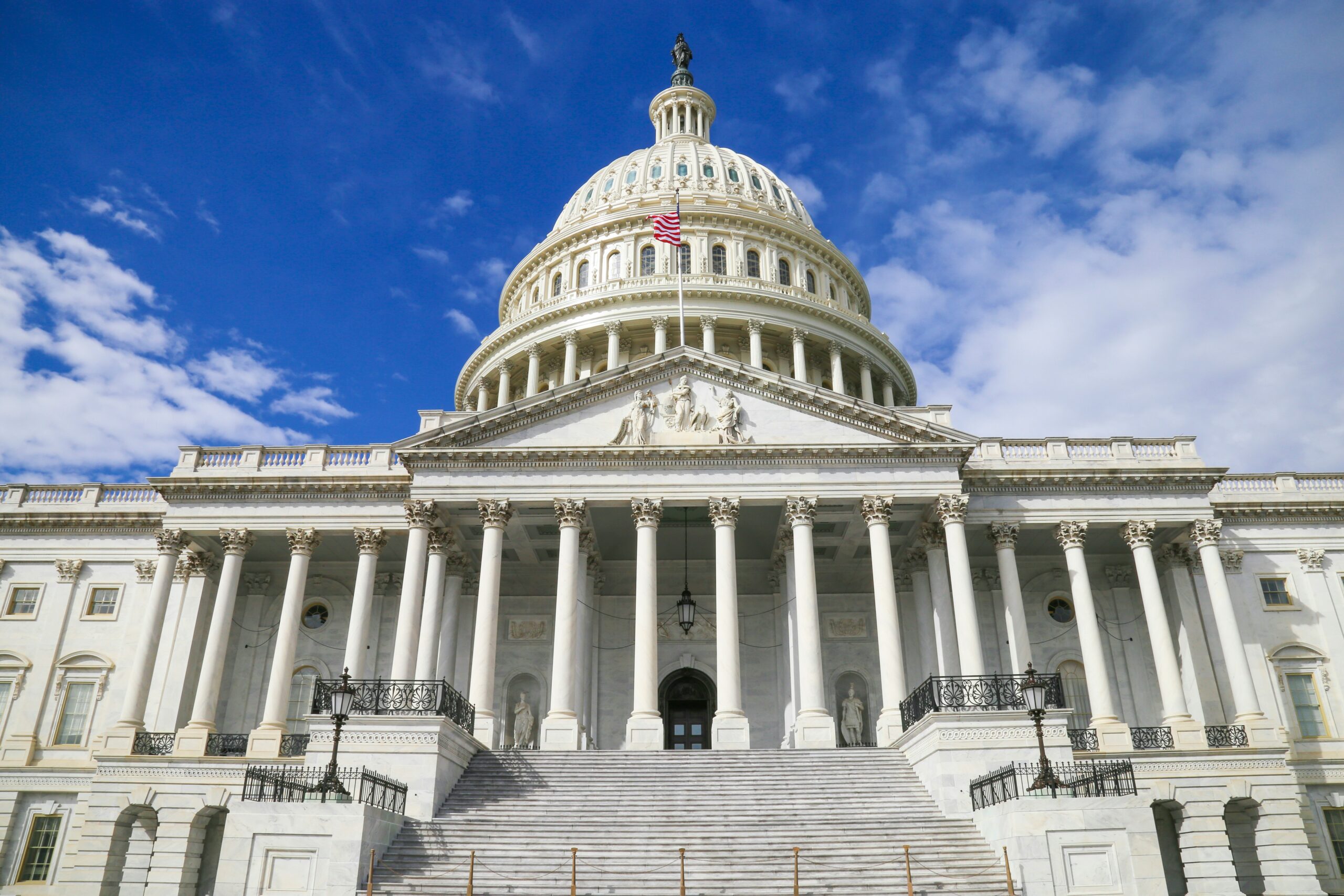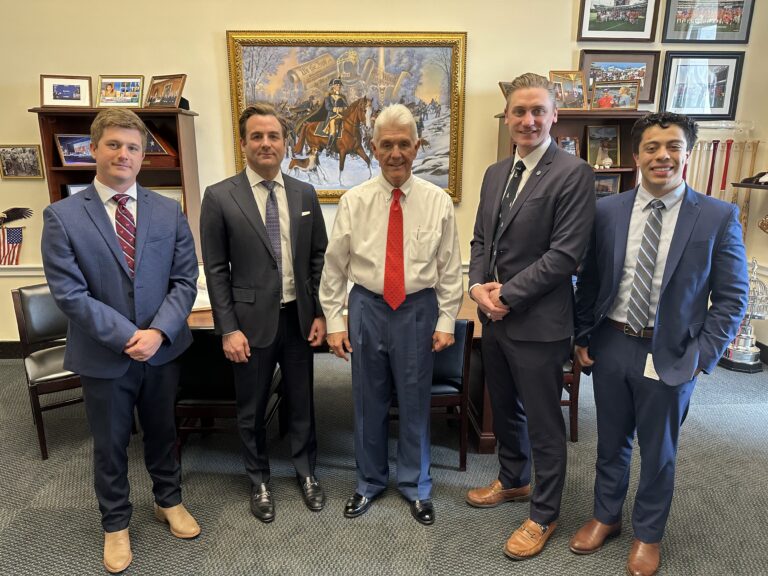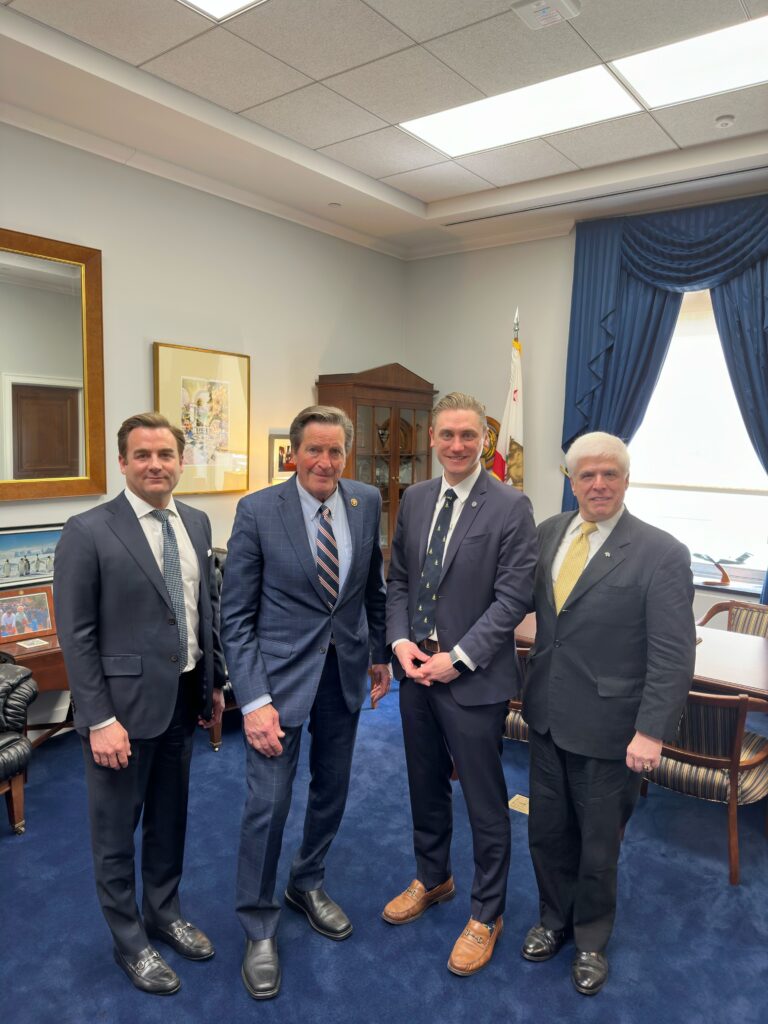Menu
Menu

By Nathanael Hawthorne, YOUNGSTOWN 2020
Your support is needed to preserve and protect the Fraternal experience for generations to come.

Sigma Chi – and Greek-letter life everywhere – has been under attack in recent years from egregious overreaching by third-parties with attempts to control or limit the manner in which our Fraternity conducts its affairs. Work is underway to stop this intrusive behavior and, most importantly, prevent it from ever happening again — but we need your support to protect and preserve the fraternal experience once and for all.
On March 15, 2024, the House Education and Workforce Committee introduced the Respecting the First Amendment on Campus Act. Officially named H.R. 7683, the bill would apply to any campus receiving Title IV funding from the Higher Education Act (HEA). Bottom line, this bill addresses crucial concerns surrounding freedom of association, specifically in the context of Greek-letter organizations.
Specific provisions included in the bill would:
• Ensure students are educated on their First Amendment rights;
• Safeguard the freedoms of association and religion on campus;
• Prohibit institutions from forcing students, faculty, or applicants to take political litmus tests;
and, as it relates to Sigma Chi and fraternities everywhere:
• Preserve Sigma Chi’s right to operate as a single-sex organization;
• Allow the fraternity to regulate its own membership; and
• Prevent colleges and universities from taking any adverse action against a brother or chapter, such as a suspension, other disciplinary action, withholding financial assistance or access to on-campus housing, participation in extracurricular clubs, or withholding letters of recommendation, because of the membership practice of the organization.
This legislation would finally put to rest an issue that has been plaguing our beloved fraternity since nearly the very beginning of our existence.

Since the Fraternity’s infancy, Sigma Chi has been aggressively fighting for its members’ rights. An early example of this is the Purdue case in 1877. In that case, the university president sought to ban students from joining Greek-letter societies. But, Sigma Chis fought back and were victorious.
Nearly 150 years later, Sigma Chi and the entire Greek-letter community remains targeted. There have been many documented cases of punishment being handed out to individuals, and even whole organizations, based on the actions of other groups on college campuses.
One recent case includes the University of Maryland impinging on the constitutional rights of its students who are members of the fraternity and sorority community.
Even more egregious were the actions of Harvard University in 2016 when the institution announced it would punish students who joined off-campus, unrecognized single-sex organizations. Students were chastised for their affiliation by not being awarded “leadership positions in recognized student organizations or athletic teams … (and) will not be eligible to receive College-Administered fellowships (including the Rhodes, Marshall and Mitchell Scholarships which require the University’s endorsement),” according to court documents from 2019.
In a swift reaction, numerous single-sex organizations, with Sigma Chi in a leadership role, came together to fight back. Parallel lawsuits were filed at the state and federal levels. In the years that followed, members of Greek-letter organizations from across the country backed the fight against Harvard. It was in June 2020 when a confidential settlement occurred, after which Harvard relented and removed the discriminatory policy.
Greek-letter life won. And we will continue to do so with your help.
"As reported in national news, in an egregious overreach in March, the University of Maryland (UMD) administration unilaterally suspended activities for all 37 campus fraternity and sorority chapters, except culturally-based organizations, and issued a no-contact order between new and initiated members. Impacting 1 in 7 students at UMD, this unlawful violation of First Amendment rights was executed without any reports of policy violations or allegations being shared with organizations or individuals. Further, hundreds of students were mandated to take part in investigative interviews, where agents of a third-party firm reportedly invaded their privacy asking them to turn over messages, images and calendar information from their phones.
After weeks of uncertainty, the University lifted the suspension for all but five organizations. While the University could have followed due process by investigating these organizations that had specific reported policy violations, they held the community hostage for an investigation that was jarring, confusing and overwhelming to thousands of students who work to provide a safe environment. The impact of UMD’s actions also has potential long-term, down-stream negative implications for the future of the entire fraternity community, including decreased member retention, lost revenue, reputational harm and a hit to recruitment."— North American Interfraternity Conference | April 8, 2024
The introduction of legislation in Congress that would preserve and protect Greek life is not a coincidence. Rather, it’s the result of the collective work of interfraternal leadership advocating for the rights of our members. And, that work is made possible, in a large part, by the unwavering support of thousands of fraternity and sorority alumni who donate to the Fraternity and Sorority Political Action Committee (FSPAC).
When you support FSPAC, donations get pooled together to support federal candidates who, regardless of political affiliation, understand the specific needs, interests, and concerns of fraternity and sorority members and their organizations. By utilizing these resources, FSPAC helps elect lawmakers who can champion our issues and pass important legislation like the Respecting the First Amendment on Campus Act, The Stop Campus Hazing Act, and the Collegiate Housing & Infrastructure Act.
Please join the hundreds of Sigma Chis who have stepped up already to make a contribution to the FSPAC by making a personal contribution through the FSPAC’s website.

Contributions to the Fraternity and Sorority PAC are not tax deductible for federal income tax purposes. Funds received in response to this solicitation will be subject to federal contribution limits and source prohibitions. Contributions are limited by law to $5,000 per year from any individual or PAC, and contributions from corporations, labor unions, federal contractors, and foreign nationals are strictly prohibited. Federal law requires political committees to report the name, address, occupation, and name of employer for each individual whose contributions aggregate in excess of $200 in a calendar year.

